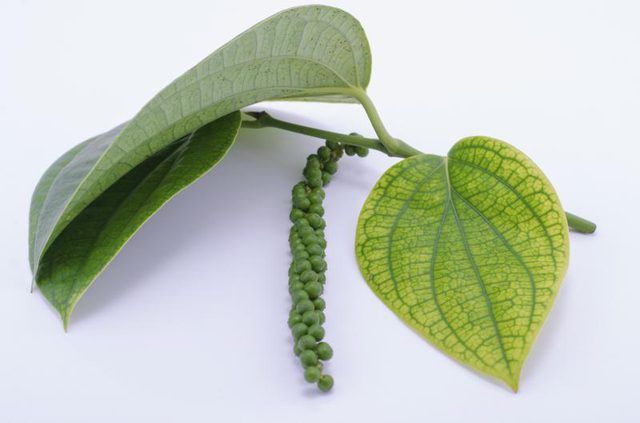Bulbs
Flower Basics
Flower Beds & Specialty Gardens
Flower Garden
Garden Furniture
Garden Gnomes
Garden Seeds
Garden Sheds
Garden Statues
Garden Tools & Supplies
Gardening Basics
Green & Organic
Groundcovers & Vines
Growing Annuals
Growing Basil
Growing Beans
Growing Berries
Growing Blueberries
Growing Cactus
Growing Corn
Growing Cotton
Growing Edibles
Growing Flowers
Growing Garlic
Growing Grapes
Growing Grass
Growing Herbs
Growing Jasmine
Growing Mint
Growing Mushrooms
Orchids
Growing Peanuts
Growing Perennials
Growing Plants
Growing Rosemary
Growing Roses
Growing Strawberries
Growing Sunflowers
Growing Thyme
Growing Tomatoes
Growing Tulips
Growing Vegetables
Herb Basics
Herb Garden
Indoor Growing
Landscaping Basics
Landscaping Patios
Landscaping Plants
Landscaping Shrubs
Landscaping Trees
Landscaping Walks & Pathways
Lawn Basics
Lawn Maintenance
Lawn Mowers
Lawn Ornaments
Lawn Planting
Lawn Tools
Outdoor Growing
Overall Landscape Planning
Pests, Weeds & Problems
Plant Basics
Rock Garden
Rose Garden
Shrubs
Soil
Specialty Gardens
Trees
Vegetable Garden
Yard Maintenance
How to Grow Black Pepper for Peppercorns
How to Grow Black Pepper for Peppercorns. Prized for their aroma and spicy flavor, peppercorns are a staple spice in many kitchens. They are the fruit of the black pepper plant (Piper nigrum), a tropical woody vine noted for its showy, heart-shaped leaves. Growing black pepper plants at home for their peppercorns takes effort because most will fail...

Prized for their aroma and spicy flavor, peppercorns are a staple spice in many kitchens. They are the fruit of the black pepper plant (Piper nigrum), a tropical woody vine noted for its showy, heart-shaped leaves. Growing black pepper plants at home for their peppercorns takes effort because most will fail to flower if stressed. The chances of successful fruiting, however, increase if gardeners meet the plant's growing conditions and care requirements.
Climate Considerations
Black pepper plants originated in southern India and Sri Lanka, where they adapted to warm, humid conditions year-round. They grow best within U.S. Department of Agriculture plant hardiness zone 12 but will also grow outdoors in zones 10b and 11 if planted in a bright, sheltered location. Black pepper plants are more likely to produce peppercorns when grow outdoors, which is not always possible outside the tropics. Potted houseplants are less likely to produce fruit but can if grown under ideal conditions with temperatures stay above 65 degrees Fahrenheit. They should be moved outdoors during the summer, however, to increase their sun exposure and access to pollinators.
Growing Conditions
Light exposure plays a key role in producing peppercorns. Black pepper plants perform well if grown in full to partial sun, but they need higher light conditions for good flower and fruit production. Grow outdoor black pepper plants with filtered southern exposure and indoor plants near an east- or west-facing window. Black pepper plants need organically rich, moisture retentive soil with fast drainage, as well as a support structure capable of bearing their 10- to 15-foot-tall vines. Space multiple plants 12 to 15 feet apart. Potted plants do best in a clay pot with a soil mix made up of 2 parts milled peat, 1 part loam and 1 part sand or perlite. Make sure to use draining containers so root rot doesn't develop.
Water Needs
Black pepper plants require consistent moisture year-round, but their needs vary according to the season and their growing conditions. Allow the soil of indoor and garden-grown black pepper plants to dry out on the surface between waterings. Provide garden-grown plants 1 inch of water at each watering, moistening the soil to a 6- to 15-inch-depth. Saturate potted black pepper plants until the excess water pours from the pot's drainage holes]. Decrease water during the winter, providing just enough to keep leaves from wilting. Cooler temperatures slow moisture evaporation, so check the soil before watering in winter and provide water only if it feels dry beneath the surface.
Fertilizer Requirements
The fertilizer needs of black pepper plants vary depending on their growing conditions. Those grown in leaner soil outdoors on in pots require more supplemental fertilizer, while those grown in rich, moist soil outdoors need less. Potted black pepper plants benefit from the addition of 2 cups of slow release, 14-14-14 analysis fertilizer per 2 gallons of soil in their container at planting. The ongoing fertilizer needs of garden-grown and potted black pepper plants are the same. Dissolve 1/4 teaspoon of 15-15-15 or 7-9-5 analysis fertilizer in 1 gallon of water. Replace one watering every one to two weeks with the solution. Stop feeding in autumn and winter to allow the plant to rest.
Special Care Tips
True to their tropical origins, black peppercorn plants perform best when humidity levels are above 50 percent. Lower levels will not cause significant or long-term damage, but prolonged dryness can stress the plants and decrease the likelihood of blooming. Mist black peppercorn plants frequently to keep their foliage and stems hydrated. Increase misting to several times daily during hot, dry weather. Growing black peppercorn plants in a naturally humid location such as a kitchen or bathroom is another less-involved method of meeting their humidity needs, as is placing their pot on a shallow tray filled with moist pebbles.